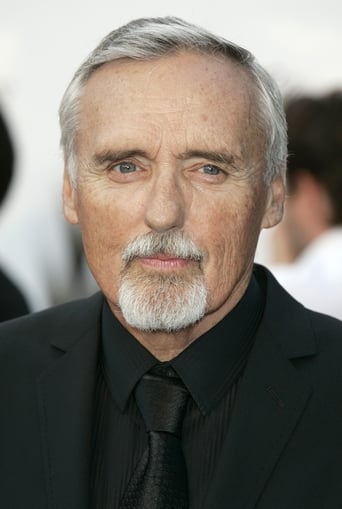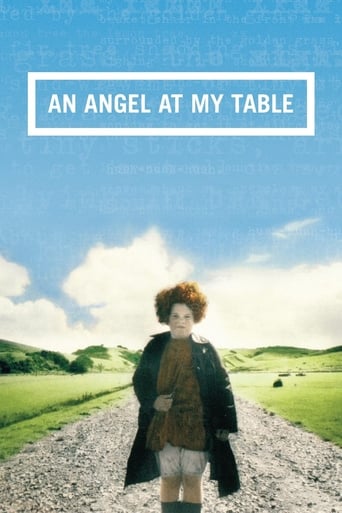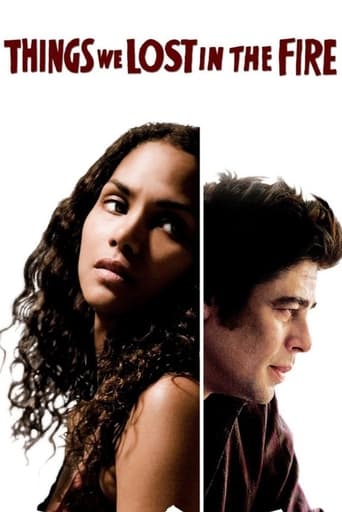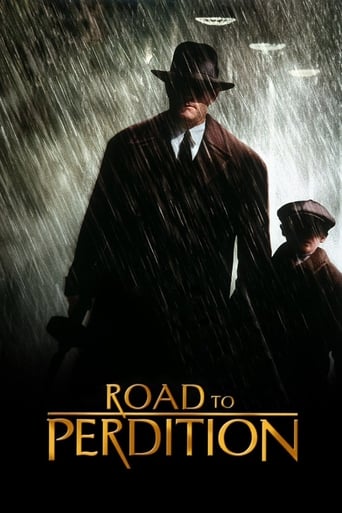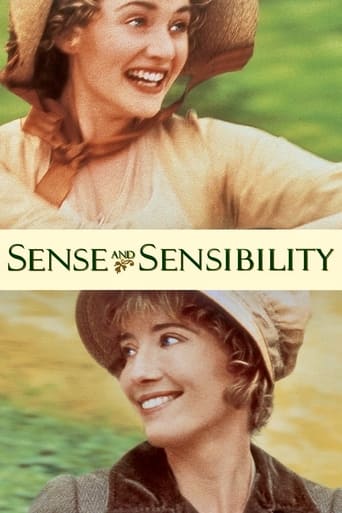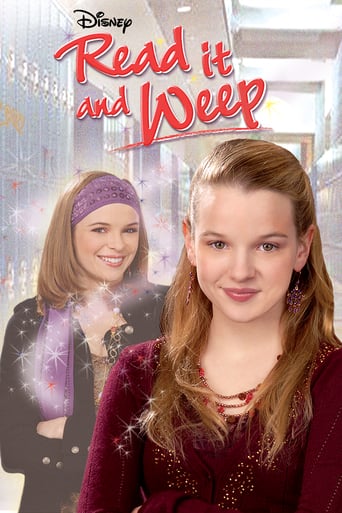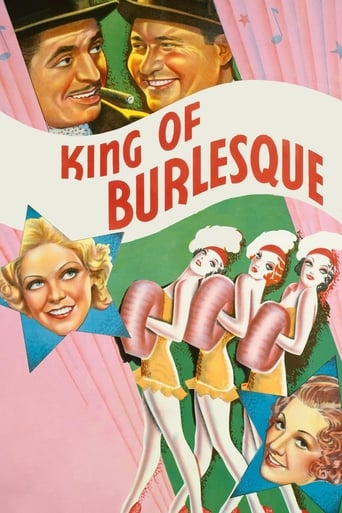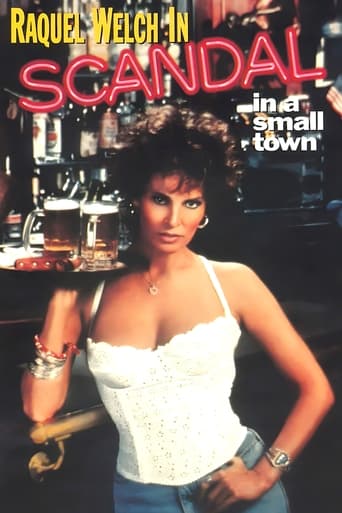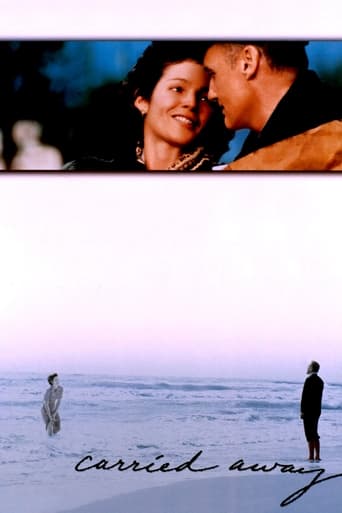
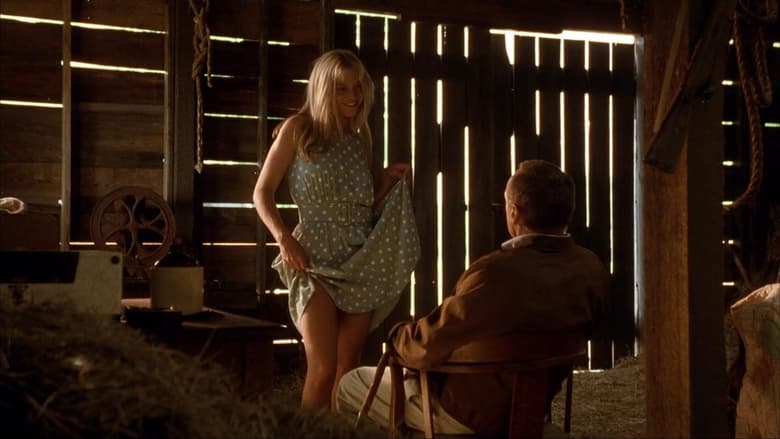
Carried Away (1996)
Based on Jim Harrison's book, "Farmer". 47-year-old Joseph Svenden lives on the family farm with his dying mother and teaches at a two room schoolhouse with Rosealee, his lover and his best friend's widow. Joseph, who lacks a college degree, learns that he will lose his teaching job at the end of the year when the school district expands into his town. Meanwhile, he is seduced by 17-year-old Catherine, a new student in his class. His affair with Catherine and losing his teaching job forces Joseph to take a look at his previously dull life and to decide how he wants to live the rest of it.
Watch Trailer
Cast


Similar titles
Reviews
I love this movie so much
People are voting emotionally.
Funny, strange, confrontational and subversive, this is one of the most interesting experiences you'll have at the cinema this year.
The story, direction, characters, and writing/dialogue is akin to taking a tranquilizer shot to the neck, but everything else was so well done.
From time to time I come upon a film that is revolting, but that I am sure that could be recut from existing footage and made into a fine project. This is such a film. Changing just the score might tip it into tolerable. What's there now is a syrupy Hallmark violin jelly that swells when the composer thinks we should be following expected emotional urges.Superficially, this is a simple redemption story: an "old" man (at 47!) is tied to his mother and is reluctant to marry the long time love of his life. She is the war widow of his best friend. The crisis that makes things end happily (in that artificial cinematic notion of happiness) is his affair with a damaged 17 year old. She is a seductive student of his. He gets "carried away" with the girl, repents and then teaches his real love to do the same with him.At this level, we have little material on which to build a successful narrative. But it has Dennis Hopper in one of his strong acting periods. I watched this because he recently died, and I miss him.There is one device here that could never be made to work, and it seems to have come from the inept director. Hopper's character is a teacher in a one-room rural school, to be imminently closed. He is an uneducated man himself; but is a teacher because his long-time love is one and he has a bad leg leaving him unfit for farming.But he is a poetry enthusiast, knows the passion of a possible life and tries to pass it on to his students. This is crudely represented by his desire to play on the beach. He has a painting of a beach which the filmmaker uses as a visual representation of poetry and the urges it stirs. Being "carried away" in this sophomoric sense means being taken by passion to the beach, which (no fooling) happens at the end. Midway in the movie, the girl drops and breaks the painting. This never could have worked. It and the immature score work against the thing.But there are some powerful, key scenes. If the filmmaker (or his producers) wasn't working against himself these three scenes by themselves with Hopper could have made this memorable, penetrating. They all are rooted in the barn.We are introduced to Hopper's character as he awakes before dawn, leaves his bed and the house where his mother is dying. He goes to the barn. There he milks the cow, with whom, we discover, he is more emotionally open than to any person. This is the first of the three anchor barn scenes. It sticks because it is so early in the narrative and because Hopper makes it so.Later, the teen girl places her horse in that barn and the rutting begins. He naively believes it will stay in the barn, but of course it "gets out." We have some nudity from this lovely young girl, enough for it to register as a token of her openness. This is linked to the horse, which she rides for sexual pleasure. We see her nude on the horse. It is clumsily done, but we get the message that her sex in his world is her horse in his barn.The next anchor scene makes my heart ache. We have learned that the girl's father is a rough military type, at home killing things. We have seen the two men together, competitively hunting and we have had the pecking order established. We learn as Hopper's character does that the father is coming to get him for screwing his daughter.Now what happens works because of Hopper. He gets the hunting rifle that has been a treasured gift just received from the doctor who cared for the man's just deceased (a few days) mother. It is by way of a bereavement token. He goes to the barn, by now the well established space for his internal being. In the same loft where he lost himself in the girl's body, he takes up a sniper's position, intent on killing the Colonel by surprise. The emotion Hopper conveys is built on an entire life and we get it all.He spies a wolf, already discussed as impossible in that area — a noble animal, free. The man has a clean shot and chooses not to take it. Again, Hopper makes the soul fly. Then the scene is abruptly defused with deliberate, punctuating skill.The final anchor scene... the young girl shows up at the man's house. He has already conquered his passions and gently rejects her advances. She knows this and admits that she has set the barn on fire. Her horse runs from the barn ablaze and dies (thankfully offscreen, but the concept is revolting). The next morning we see Hopper walk out to the now smoldering barn just as his cow comes in from the field to be milked. The two ponder needs, the future and the ruins.Making a powerful narrative is in part an understanding of these key images and when to invest. Hopper did.The filmmaker is not so clean. He works in three other scenes associated with the women. Hopper's mature love (Amy Irving) in a nude coming out, the girl in a scene where she rewins him after a rough car ride and the dying mother coming clean about her desires for her son. Each of these had juice. But none of them really work because they had not had a place built for them in the narrative.Ted's Evaluation -- 2 of 3: Has some interesting elements.
Yesterday, I heard about the death of Dennis Hopper. I remembered buying a VHS copy of this film quite some time ago, but never watched it. Hearing it was one of his better roles, I thought it would be a suitable tribute to the man."Carried Away" is the sort of film loved above all others by a certain type of audience. There's guilt, tragedy, alienation, and most of all - sex. "Carried Away" is the sort of film that always feels like winter, even if made in the middle of summer. It probably takes place in the 1970s, though that's never specified. This is not normally the sort of film I like. But there's a number reasons why it is so good. Mainly, the actors. Dennis Hopper is every bit as impressive as he's ever been, playing a character of painful reality and depth. Hal Holbrook, Julie Harris, and Gary Busey are all quite welcome as well. Amy Locane is interesting, playing on a complex level of childishness and convincing sexuality.I got a lot of "Carried Away", because it has a lot put into it. The humanity is a basic thing, the details of ordinary actions, the observation of a slow day. In the end, the film is a little too hard and cold for its own good. It wants to make you feel cold in the summer, but that's just an illusion. Like black & white in colour. This could have been a bright, vivid film to even greater effect. But that's just a minor complaint.
Often-volatile Dennis Hopper really gets a chance at a thoughtful dramatic performance here playing a Texas farmer and schoolteacher, semi-engaged to a fellow instructor, who is seduced by a teenage temptress. Low-keyed picture doesn't aim for shocking revelations or melodrama; it's exceedingly straightforward and just a bit dull. Good acting by Hopper, Amy Irving, Amy Locane (from "Cry Baby"), and Priscilla Pointer, though the movie could really use some adrenaline. Some nude scenes, filmed without a hint of titillation, are remarkable only for the fact that no one, including director Bruno Barreto, is energized by the sex--it's all kept very mundane. ** from ****
This is a beautiful and rare look at rural America in the 1960s. Dennis Hopper plays a schoolteacher with a gimpy leg who is quite unexceptional. He's middle-aged but still only engaged (to Amy Irving who is fantastic in this!)and still lives with his aged mother (the wonderful Julie Harris). Suddenly, a young, fresh, beautiful and vibrant teenager arrives at his school and he finds his heart - and other vital organs - stirred beyond endurance. She's technically not innocent (she's not a virgin) but she's no Lolita either. She's the epitome of the young women of Andrew Wyeth's paintings. In fact, the whole film looks and feels like a Wyeth painting: organic and idyllic with an emptiness that's filed with loneliness. The script is intelligent and original, allowing each character to be fully developed, and Dennis Hopper gives the performance of his career.I've read a few reviews here and elsewhere that complain about Hopper's age and the frontal nudity. I belong to the school of thought that nothing natural is ugly, and that art should not ALWAYS be pure and youthful and beatific (which BTW, was what Hitler's vision was. Art that wasn't beautiful was classified as "degenerate" and banned). If there's room for artists like Michelangeo and Egon Schiele in this world, and there's surely room for Brad Pitt AND Dennis Hopper! If the nude body is something that you just can't look at then a film like this may not be for you (there's only one very brief scene). But keep in mind that you can't broaden your vision of humanity if you don't have an open mind and are willing to look below the superficial surface that at least in Hollywood, poses as reality.


